Following are a set of P2 options you may wish to implement. No option is perfect for everyone, but sometimes options that have worked at one facility can work at yours. They might also serve as inspiration. |
Reviewed Fleets OptionsOptions below have reviewed by pollution prevention specialists. They are commonly recommended and implemented for facilities. |
|
| Recycle antifreeze | |
| Recycle antifreeze either on-site or off-site. If more than 1,000 gallons per year of antifreeze is used, the payback period will generally be less than one year. | |
| filtration or distillation units | |
| Reuse solvent by installing filtration or distillation units. | |
| Cover sinks | |
| Cover sinks to prevent solvent evaporation loss. | |
| prevent spillage | |
| To prevent spillage, remove parts from washers slowly | |
| Alternatives to hazardous solvents | |
| Consider alternatives to hazardous solvents. Many nonhazardous solvent substitutes are available, including high flash point hydrocarbon solvents (greater than 150 degrees F) | |
| water-based solvents | |
| Use water-based solvents. (Note: Nonhazardous solvents can become hazardous as a result of contamination from, for example, carburetor cleaner, gasoline, or hazardous solvents.) | |
| bioremediation parts washer | |
| Install a bioremediation parts washer that uses enzymes to eat oil and grease. | |
| oil recycle | |
| Contract with an oil recycler for waste oil collection and recycling. | |
| oil analysis program | |
| Institute an oil analysis program to ensure that oil is only changed when necessary. Reliable, low-cost oil analysis equipment is available. | |
| bypass filtration systems | |
| Install bypass filtration systems to extend oil life. Bypass filtration systems generally remove impurities as small as one micron in size. | |
| recycle used oil filters | |
| Drain and crush used oil filters and send to a recycling company. Certain companies recycle every part of the filter, including residual oil, metal, and the filter component | |
| reusable screen filters | |
| Install reusable screen filters for the main oil filter. | |
| Bulk Purchase | |
| Purchase chemicals (such as spray lubricant) in bulk and apply with either pump sprayers or new specialized spray cans which can be pressurized up to 200 pounds per square inch with shop air. | |
| used aerosol cans | |
| Empty and depressurize used aerosol cans. Send the empty cans for metal recycling | |
| drip pans | |
| Minimize spills and cleanup by using drip pans. | |
| Use wringers for recycling. | |
| Use reusable absorbents and recover spilled fluids with wringers for recycling. If wringing out flammable solvents, be sure to electrically ground the wringer | |
| Sweep shop floors | |
| Sweep shop floors instead of hosing them down with water. | |
| Reassess the need for sumps | |
| Build a solids tray to reduce solids in the sump. Reassess the need for sumps. If you don't need a sump, plug it. | |
| industrial laundering | |
| Send contaminated shop rags to an industrial laundering facility for cleaning and reuse. (Note: The facility must be in compliance with all federal and state wastewater discharge regulations.) | |
| Battery storage | |
| Store lead-acid batteries, upright and off the ground with a leak containment system around the area. | |
| extend battery life | |
| Extend lead-acid battery life with advanced battery management programs. Trickle charge systems, solar trickle charge systems, and brass connectors can significantly extend battery life by improving conductivity and reducing sulfation of the lead plates in the battery. | |
| deep-cycle batteries | |
| Consider new deep-cycle batteries which can last much longer than conventional batteries | |
| Recycle Texas On-line database | |
| Recycle Texas On-line a searchable database of companies that recycle various materials such as antifreeze, oil, and metals. You can also order the publication (GI-24) | |
| EPA's Enviro$ense Solvent Substitution Data System | |
| EPA's Enviro$ense Solvent Substitution Data Systems - For access to solvent alternative information through a single, easy to use command structure. | |
| EPA's Pollution Prevention for Auto Repair | |
| EPA's Pollution Prevention for Auto Repair - includes fact sheets, video's, and case studies. | |
|
||
| Two to six | ||
| describe option | ||
| add, does it uncheck | ||
| asdfas | ||
| sdfafd | ||
| fsda | ||
| Containment | ||
| sandbox containment of 55 gallon drum to collect drips from used oil container. | ||
| Concrete washout of trucks | ||
| Concrete will be washed out at the designated pit. Water used will be drain from pit and 'left over' material will be transferred to the dry out area. Once the material is dry, it will be collected and recycled. | ||
Find Options for other processes





